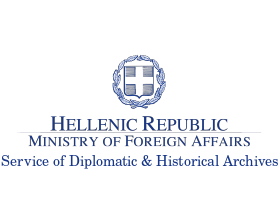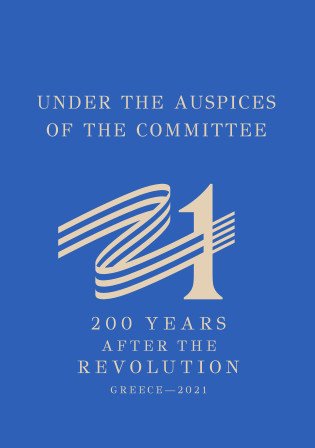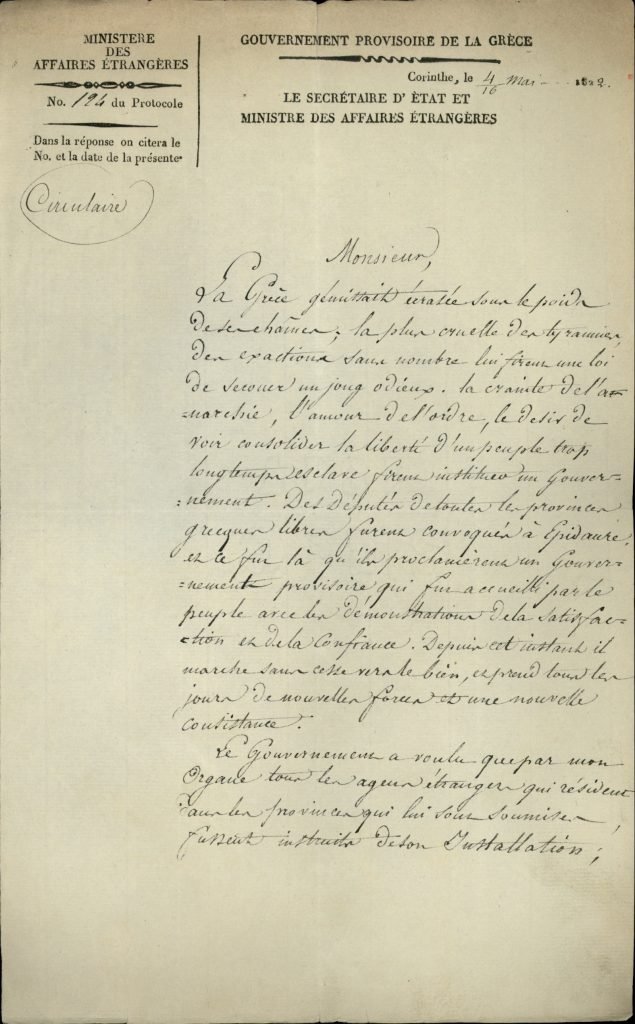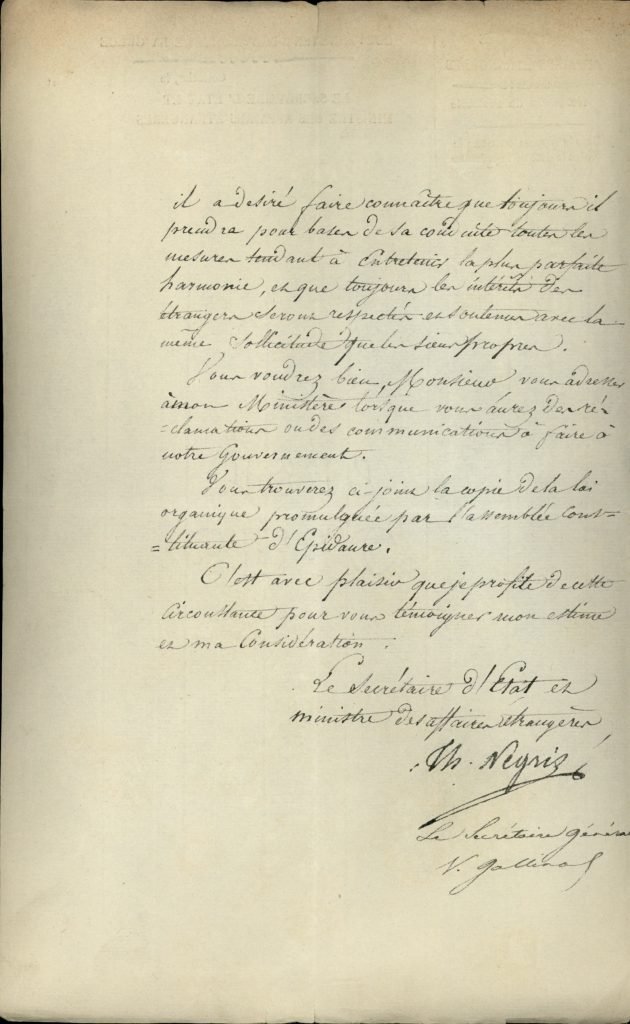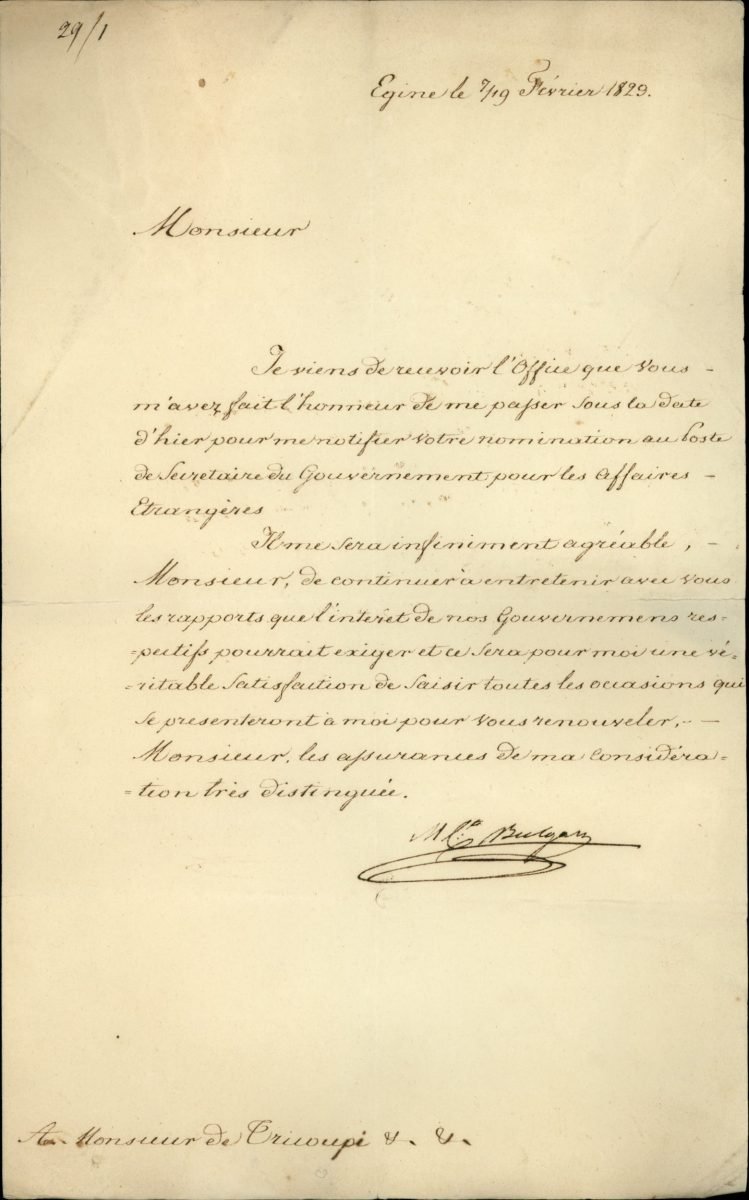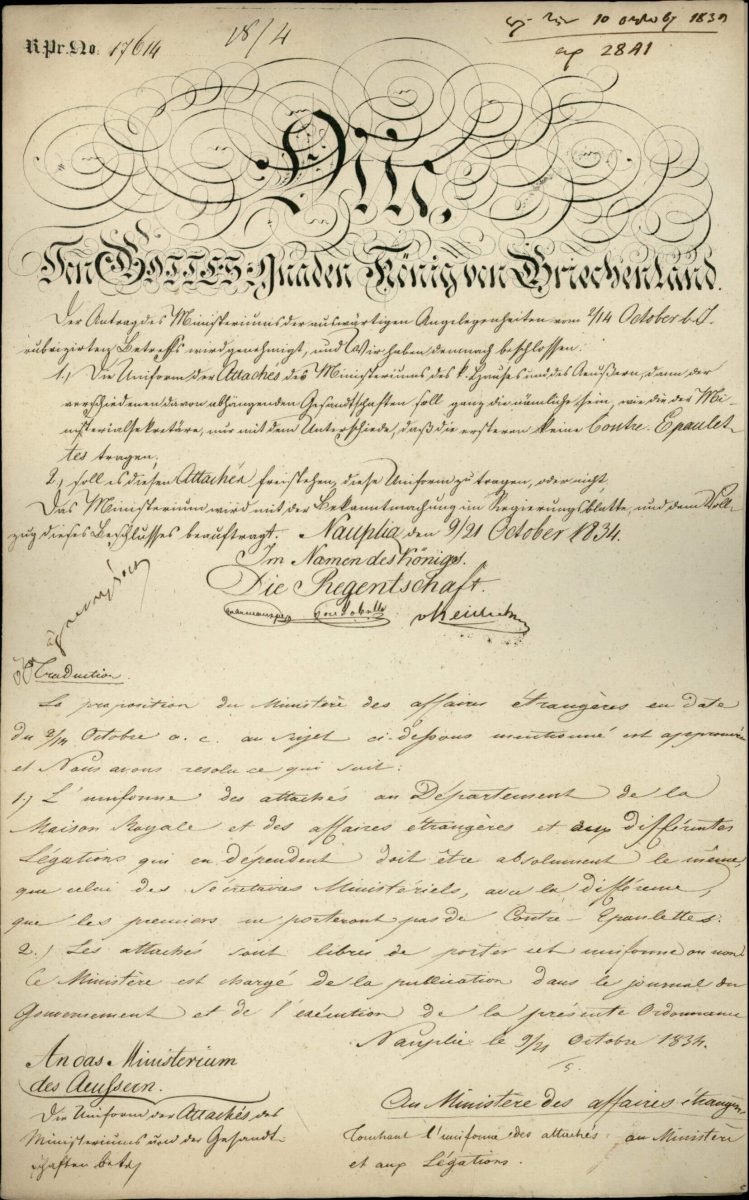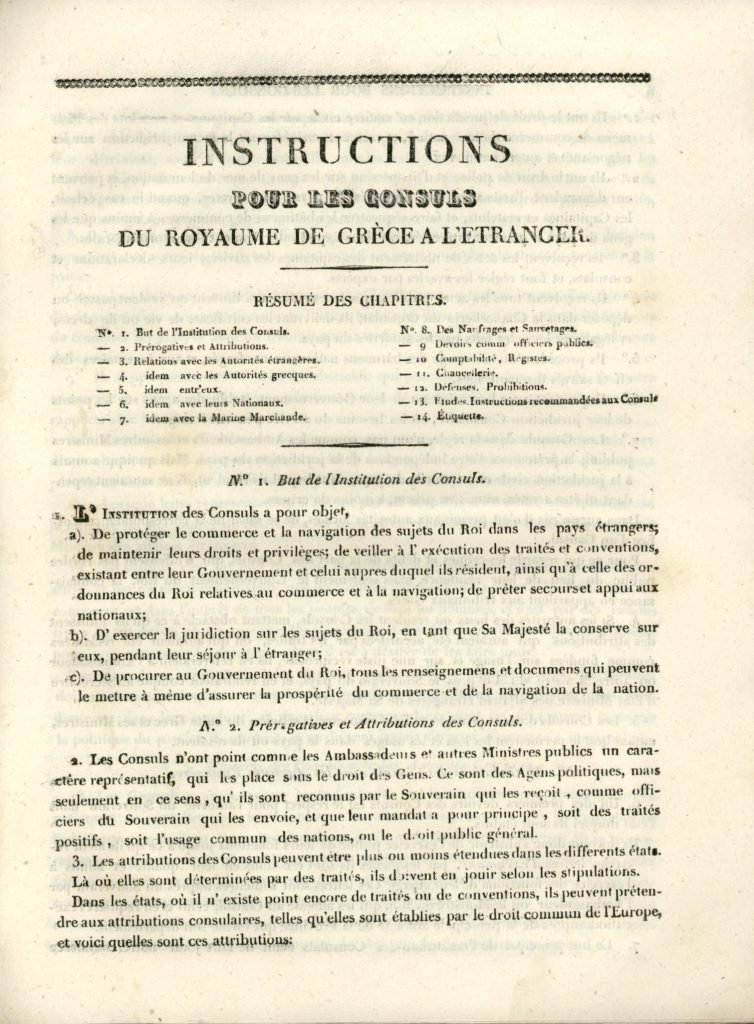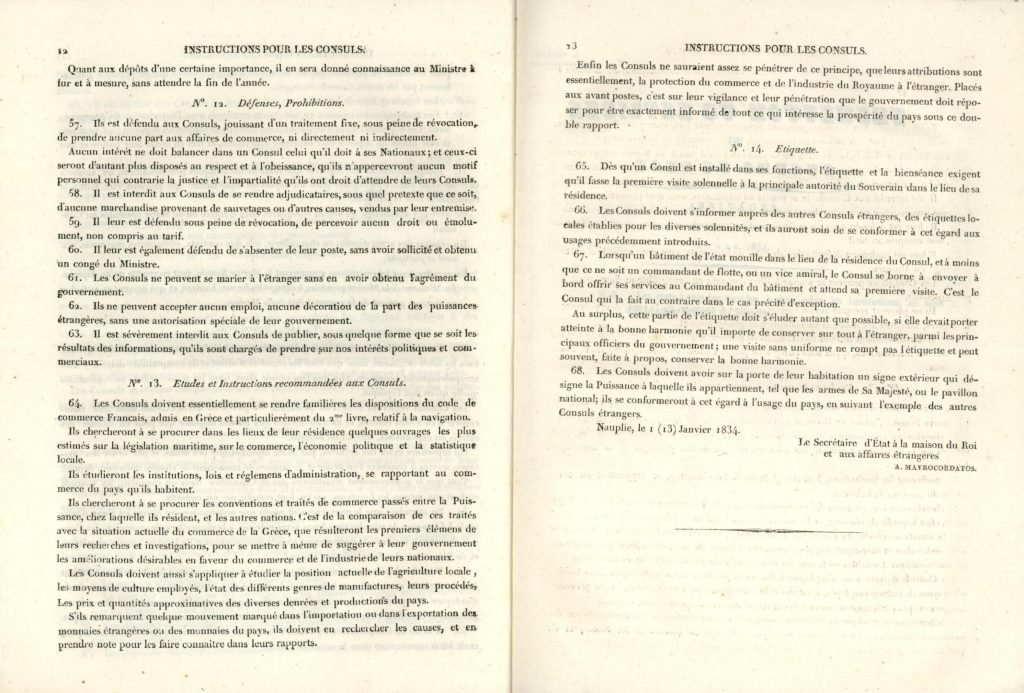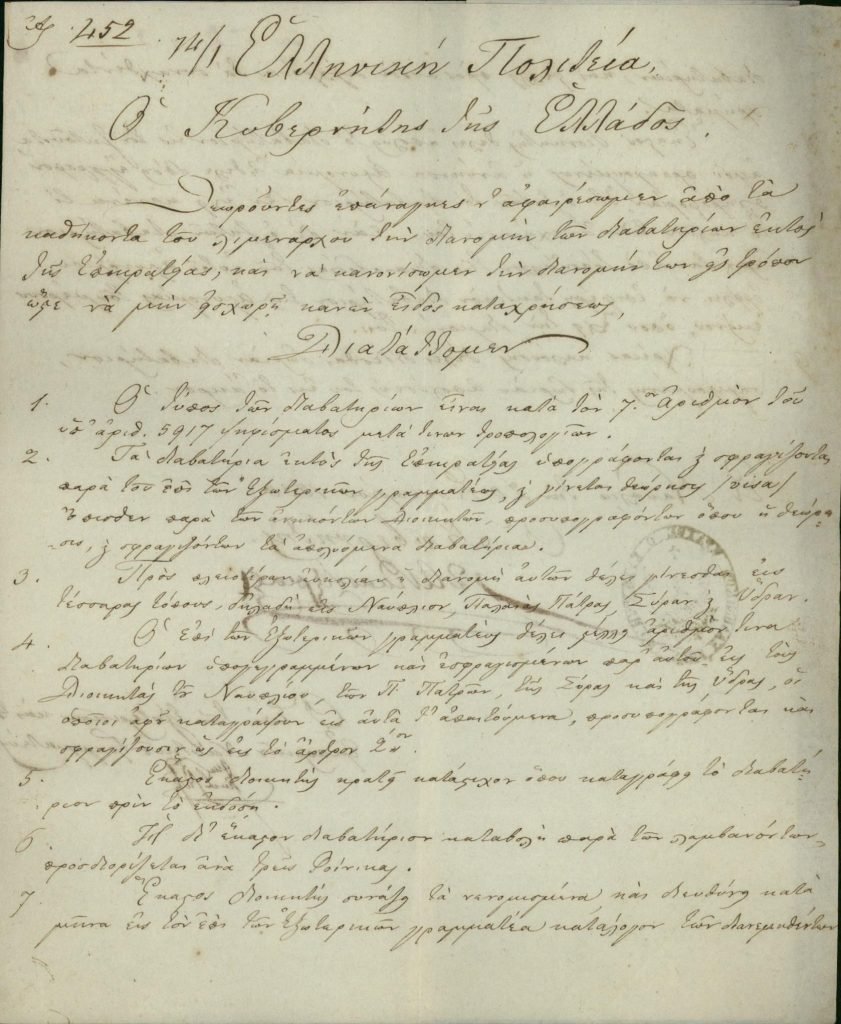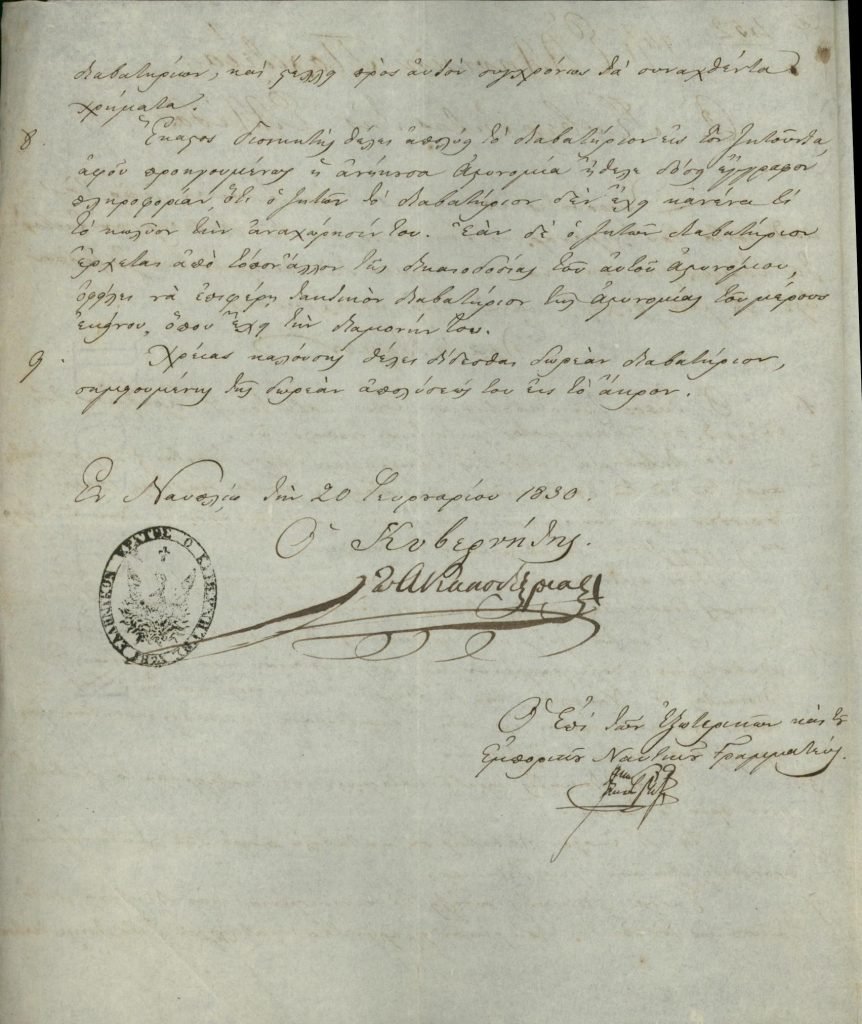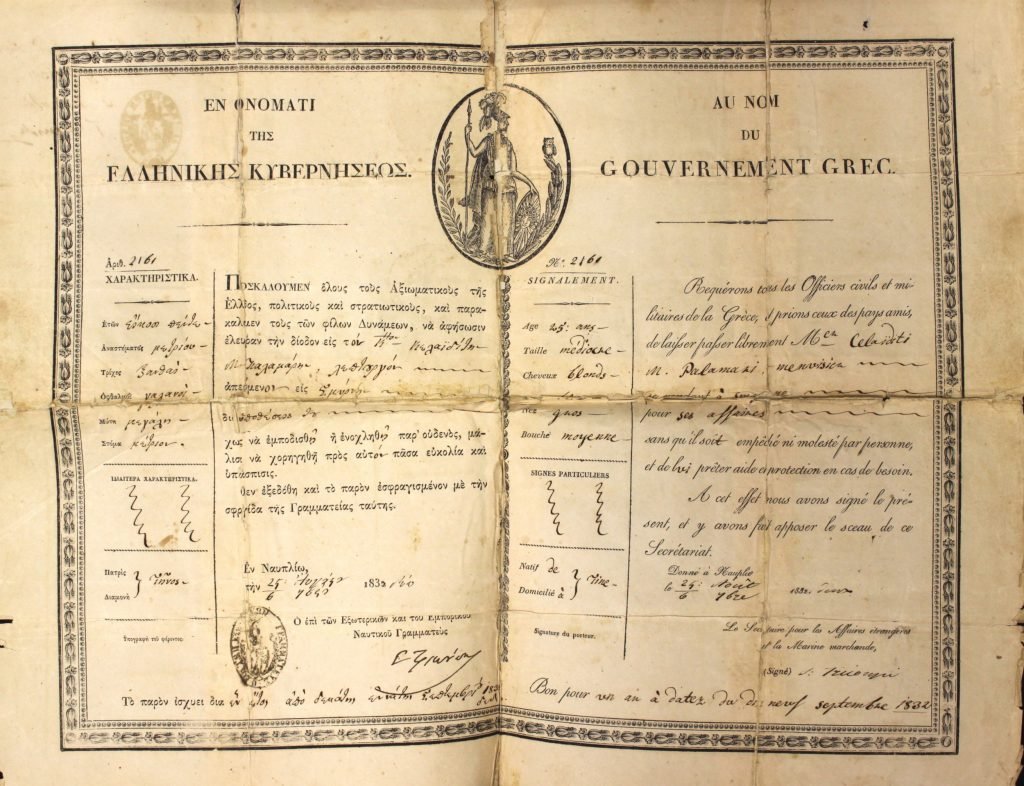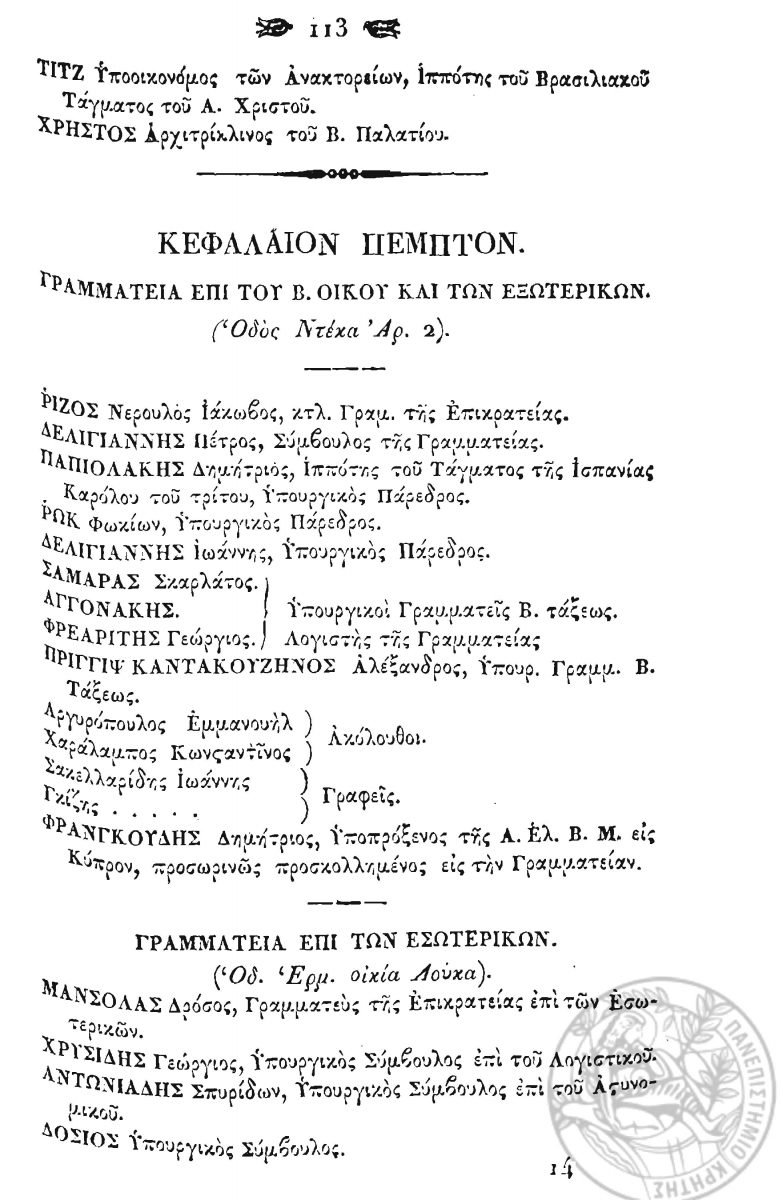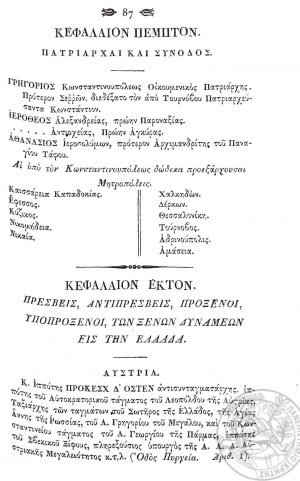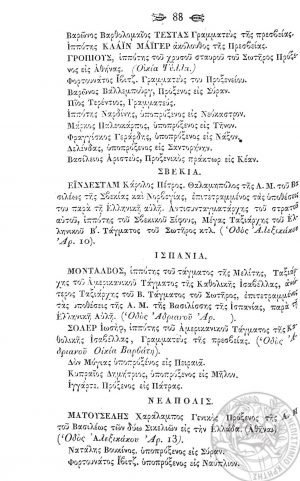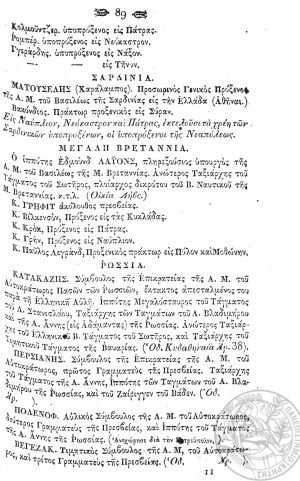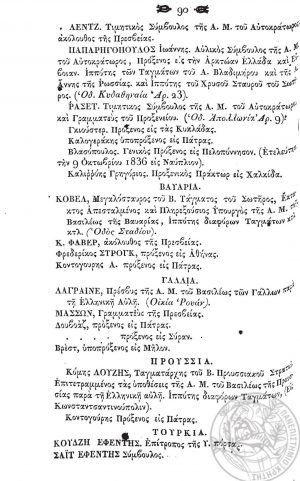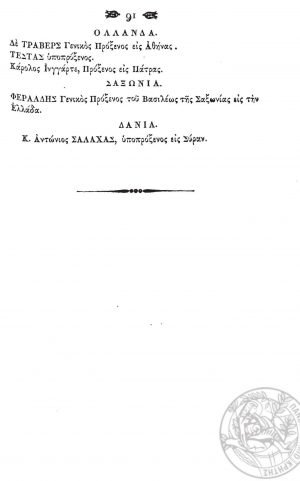The Greek Revolution, the Struggle for Independence, erupted in March 1821. The position of Minister of Foreign Affairs was first created by the first Greek Constitution, the Constitution of Epidaurus, and the establishment of the Provisional Administration of Greece in early 1822. Phanariot Theodoros Negris served as the first Minister of Foreign Affairs.
4/16 May 1822. Almost a year after the beginning of the Greek War of Independence, the Minister of Foreign Affairs of the Provisional Government of Greece, Theodoros Negris, invites consular and diplomatic representatives of foreign Governments located in the liberated Greek territories to be accredited to the Greek Government.
Terminology!
The title of “Minister of Foreign Affairs” was definitely adopted in 1844. Until then, those responsible for the country’s foreign policy usually bore different titles. In this exhibition, for the sake of abbreviation and simplification, the term “Minister of Foreign Affairs” is used for all of them.
1/13 January 1834. The first and last pages of the first consular instructions issued by the Secretariat of State of the Royal House and Foreign Affairs (Ministry of Foreign Affairs) during the mandate of Alexandros Mavrokordatos.
Terminology!
Following the Congresses of Vienna (1815) and Aix-la-Chapelle (1818), four ranks of diplomatic representatives of one ruler to another or one government to another were established, depending on the importance of each State and/or the level of relations the States wanted to develop with each other. Specifically, according to the official terminology, the accredited diplomatic representative could be:
- Ambassador (only the Great Powers had the right to accredit Ambassadors). He was the head of an Embassy;
- (Special) Envoy and Minister Plenipotentiary (all independent States had the right to accredit one). He was the head of a Legation;
- (Minister) Resident in cases of a low-level diplomatic representation, especially in countries without full independence);
- Chargé d’Affaires (the lowest level of diplomatic representation).
In this exhibition, however, for the sake of abbreviation and simplification, the terms “Ambassador” and “Embassy” are used in all circumstances, with specific exceptions.
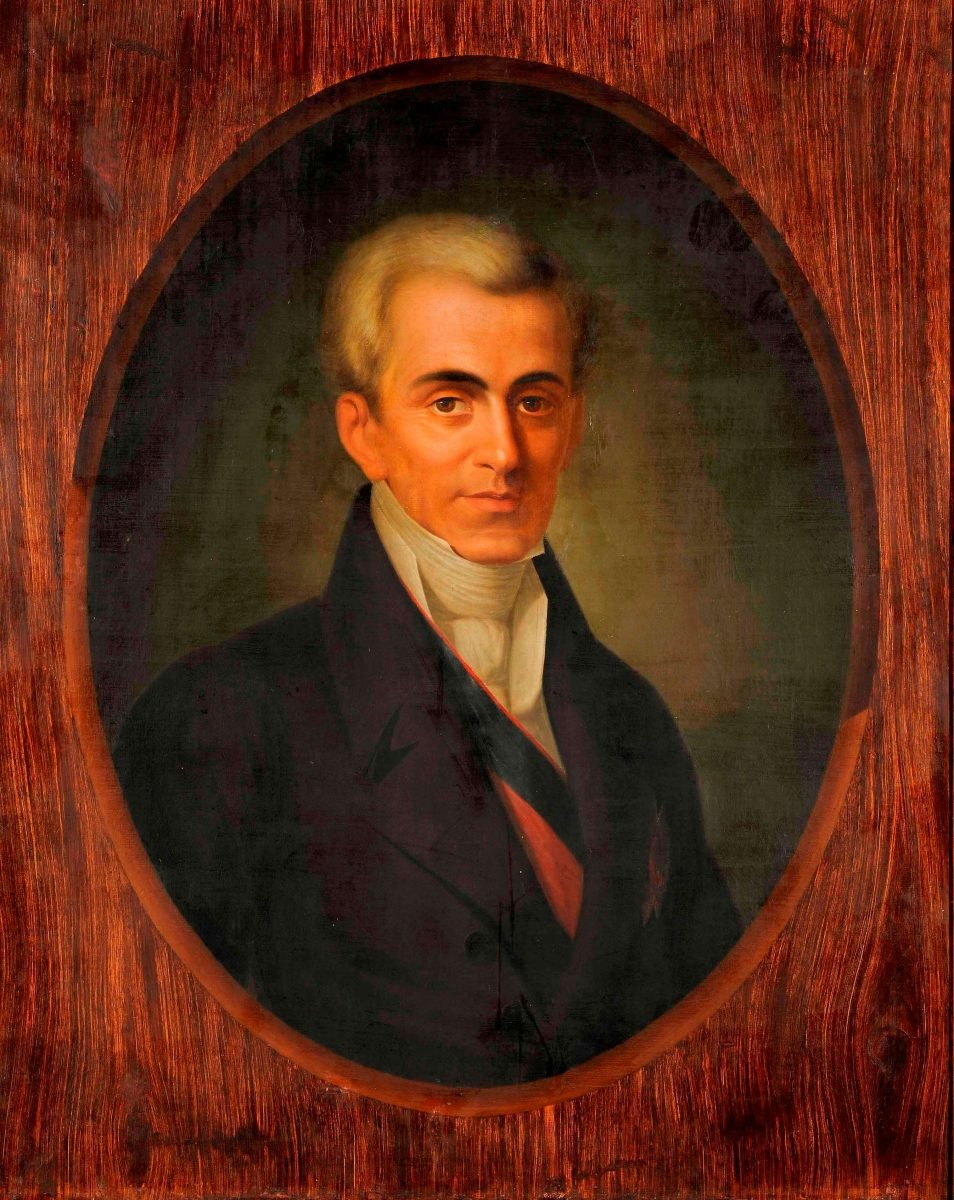
Ioannis Kapodistrias
(1776-1831)
The first Governor of Greece
Oil painting by D. Tsokos
Source: National Historical Museum, Athens
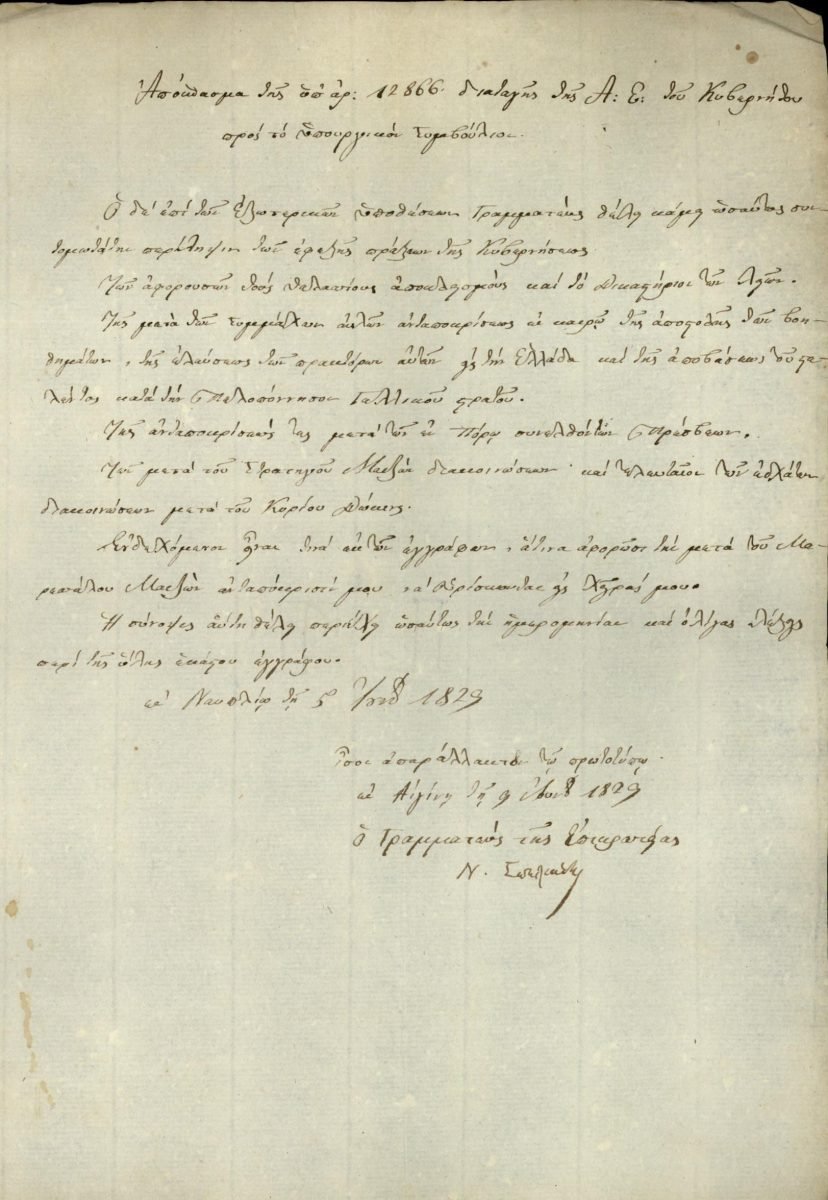
5[17] June 1829. Excerpt of an order by Governor Ioannis Kapodistrias to the Council of Ministers, by which, among other things, he orders Minister of Foreign Affairs Spyridon Trikoupis to submit a report on a list of matters within his competence.
20 February [4 March] 1830. The first Regulation for the issuing and distribution of passports of the new Greek State after the signing of the Protocol of Independence, signed by Governor of Greece Ioannis Kapodistrias. Issuing passports now falls within the competence of the Ministry of Foreign Affairs (like in most independent States), in cooperation with the Governors of four regions (Nafplio, Patras, Syros and Hydra).
1837. The Ambassadors and Consuls of foreign States in Greece, according to the “Almanach of the Kingdom of Greece for the Year 1837”, edited by A. I. Klados (Athens, 1837).
(Digitization: University of Crete, anemi.lib.uoc.gr)
